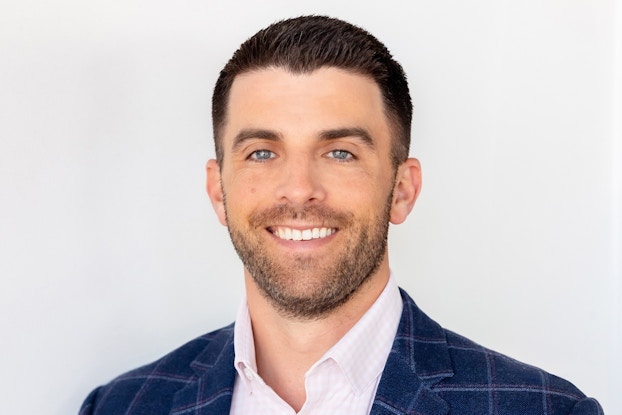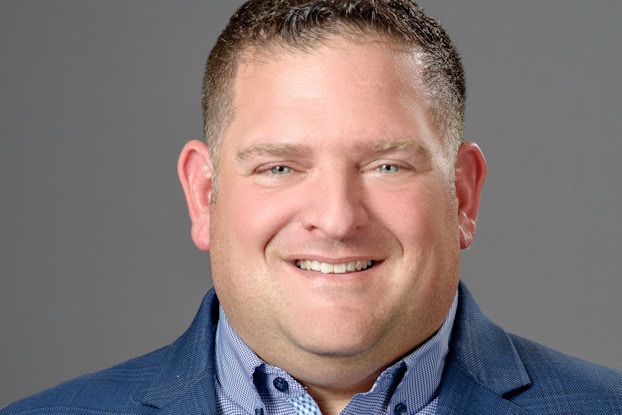
Three fundraising tips for startups, from the founders of Duckbill, Harbor, and OneRail:
- Focus on the business fundamentals and value you’re creating for customers—investors will want to invest in a business that’s working.
- Hone your pitch, show true progress, be open to feedback and ready to adapt.
- Pursue funding from a variety of sources, including angel investors, early stage venture capital, growth venture capital, private equity, and even customers.
Startup founders know funding is the lifeblood of their business. Money raised through bootstrapping, crowdfunding, angel investors, and venture capital (VC) fuels product development, operations, marketing, and hiring. When funding is scarce, even the most exciting, innovative, and compelling business idea and company can fall flat.
As venture funding, in particular, has shrunk post-pandemic—fundraising for VC dropped an estimated 25% in 2024, according to McKinsey and Company, so it’s been harder to secure dollars to scale and compete. But it’s not impossible, according to three startup founders, who shared with CO— the strategies they’ve used to land funding windfalls, including the increasingly rare Series C funding.

Interested in a small business membership?
Find out how the U.S. Chamber of Commerce can help your company grow and thrive in today's rapidly-evolving business environment. Connect with our team to learn how a small business membership can benefit your bottom line and help you achieve your goals.
Securing a windfall requires building solid and adequate evidence of your value to customers, cultivating the right connections, and staying open to a variety of funding sources, according to the startup founders.
To succeed in fundraising, “you have to think about what you can do to prove to people they should take bet on you and your idea,” said Kevin Lavelle, Co-founder and CEO of infant care technology startup Harbor. “The first conversation is almost always not a winning conversation. People want to get to know you over time.”
When you reach a point when commercial opportunities may exceed what you have in the bank account, that’s when you know it’s time.
Bill Catania, CEO of OneRail
AI-fueled personal assistant Duckbill has raised $33 million: ‘Things can go south when you don’t have an open, trust-based relationship with investors’
Meghan Joyce struggled to keep up with the everyday tasks on her to-do list: booking doctors’ appointments, filing insurance claims, and managing grocery shopping lists. She watched friends and family members scramble to get it all done, too, and thought, what if everyone could have a personal assistant to get chores done?
Hiring a full-time assistant, however, is out of reach for most. Artificial intelligence changed that. With her startup Duckbill, which bills itself as an executive assistant for your personal life, Joyce, a former Regional General Manager at Uber, combines AI with human know-how to give anyone access to a personal assistant.

“When we started out, a lot of investors thought we were crazy,” she said. Joyce heard it all. Some investors said automation will never be able to tackle such a variety of tasks. Then they questioned why she wanted humans in the loop when AI should be able to handle tasks in the near future, investors said. “Do not worry one bit about a contrarian [startup] bet,” she said. “Those are often the ones that people think are absolutely brilliant in retrospect.”
Joyce saw early success with bootstrapping, using her own money to fund her idea. Before approaching investors, she made sure she was addressing customers’ needs and she zeroed in on establishing a business with solid fundamentals.
“The strongest thing a founder can do is to build a business that solves a real-world problem and that’s an iconic, sustainable business,” she said. “When you focus on the fundamentals, the rest comes easily because investors will want to invest in a business that’s working.”
Duckbill’s concept of marrying AI with human experts helped Joyce navigate the crowded and hyped AI space, and it caught the eye of investors. Duckbill has raised $33 million in seed and Series A funding led by Forerunner Ventures alongside Greycroft, Inspired Capital, General Catalyst, G9 Ventures, Red Antler, Future Back Ventures by Bain & Company, and Offline Ventures. Investors were impressed with a strategy Joyce borrowed from Uber—piloting her concept early on with a small group of friends and family. Her experiment paid off. She gathered data as proof of concept, while the benefits of Duckbill spread via word of mouth.
Since the Series A, Joyce has doubled her team. She advises entrepreneurs to find trusted investors and cultivate those close relationship. “Things can go south when you don’t have an open, trust-based relationship with investors,” she said. “You need investors in your corner who can ask hard questions and can push you. That’s been my non-negotiable when I consider taking funds.”
[Read more: 3 Investors Demystify Why Some Startups Win Funding Windfalls]

To raise over $7 million in seed funding, Harbor CEO honed his pitch, telling a story around the art of the possible
When Kevin Lavelle’s son was a few months old, Lavelle and his wife patched together a haphazard baby monitor setup. When the app on their phones with a feed from a high-end monitor crashed from glitchy Wi-Fi, an old-school monitor with a local connection backed it up. Lavelle knew there had to be an easier, more reliable way.
Harbor’s baby monitor system works on Wi-Fi and via a direct local connection. The startup also sells a remote night nanny service powered by AI and staffed by pediatric night nurses. It detects issues like irregular snoring and alerts parents. “No one really loves their baby monitor,” Lavelle said. “People are hungry for something better.”
To drum up interest in Harbor, Lavelle harnessed his prior startup experience and network of connections he built as CEO of menswear clothing company Mizzen+Main. There, he navigated everything from early-stage bootstrapping to raising a significant growth round with L Catterton. He learned how to move from an idea to first product, scale a business, and build relationships with investors who believe in a strong vision.
“Investors want to see a track record of execution, and having already built and scaled a consumer brand, I was able to bring that credibility to Harbor from day one,” he said. Lavelle stresses the importance of diligently staying in touch with your network.
The Dallas-based startup has raised over $7 million in seed funding from venture capital firms like Trust Ventures and Morrison Seger Venture Capital Partners, along with individual investors like Entrepreneur Tim Ferriss and retired U.S. professional Tennis Player John Isner and his partner, Actor Madison McKinley.
How did Lavelle secure funding from these big-name investors? “An enormous amount of founder pitching,” he said. Tell a great story around the art of the possible, he advises. Show real progress and be open to feedback and be quick to adapt. “One of most difficult things about being a founder is that you have to be able to ignore almost everybody but also take feedback from the market and customers. It’s a razor-thin line.”
When pitching, Lavelle says, be clear and concise and communicate what makes your business unique. “If they don’t understand the problem you’re solving and why your solution is the best in the first minute or two, you’ve already lost them.”
Know your data and numbers because, while a great story gets attention, strong data is what earns trust. Investors want to know founders deeply understand their margins, acquisition costs, scalability, and long-term financial outlook. Showing traction through early tests, sales, partnerships, or customer testimonials gives investors the confidence they need that they’ve found a business with real momentum, he adds.
Finally, have tough skin, learn from the no’s, and play the long game by focusing on long-term relationship-building and genuinely engaging with the investment community before you need capital, he adds. “If you keep staying in touch, it’s possible and it’s probable that some of those people will want to join you in what you’re working on.”
“At the end of the day, fundraising is a mix of storytelling, strategy, and perseverance,” said Lavelle. “It’s tough, but when you believe in what you’re building, it’s worth every conversation.”
[Read more: How 3 Buzzy B2B and B2C Startups Scored Millions in Funding]

OneRail has raised $109 million, including rare Series C funding: To attract investors, ‘execute and create value,’ says CEO
Startup OneRail specializes in “last mile” delivery solutions, coordinating the delivery of products to customers during that final leg of shipment. It’s the most expensive and often most complicated part of deliveries and a space that’s seen massive growth amid the rise of e-commerce and rising customer expectations for convenient deliveries.
Over the last five years, OneRail has raised a total $109 million, including most recently $42 million in coveted Series C funding led by Aliment Capital. In recent years, it’s become rarer for companies to reach this third, and often final, stage of venture capital funding that allows businesses to massively scale up. Securing Series C funding requires a proven track record of substantial growth as well as a clear path to exit, such as an IPO or acquisition.
“Over the years, we’ve had numerous sources of investors,” said OneRail CEO Bill Catania. “We’ve been fortunate to have a good mix of angel investors, early stage, venture capital, growth venture capital, some PE [private equity], and even customers have invested.” No matter the industry, he adds, to be successful in fundraising, founders must have adequate proof that they’re going to provide true value to their customers.
“What it took was evidence that we had a business that enterprise-level customers would pay for, that companies weren’t going to call couriers instead, that they needed our solution.” Catania said. “Investors had to believe that we could pull it off.”
OneRail serves stores likes Lowe’s that ship goods, and it also coordinates a network of couriers that make deliveries. It was critical to show investors evidence from both sides of the business, Catania said. “It was really a matter of checking the boxes on, did we have enough couriers and did we have enough demand from shippers,” he said.
Catania, now a three-time startup founder, knew that it was time to reach out to investors after he locked down several big-name customers who were willing to pay for his service, and once he knew that he had repeatable revenue.
“Those were the signals investors needed,” he said. “When you reach a point when commercial opportunities may exceed what you have in the bank account, that’s when you know it’s time.”
The best advice for startup founders who are looking to secure funding, added Catania, is to truly differentiate your product or your service, and then “[e]xecute and create value,” and then the funding will fall into place.
CO— aims to bring you inspiration from leading respected experts. However, before making any business decision, you should consult a professional who can advise you based on your individual situation.
CO—is committed to helping you start, run and grow your small business. Learn more about the benefits of small business membership in the U.S. Chamber of Commerce, here.







